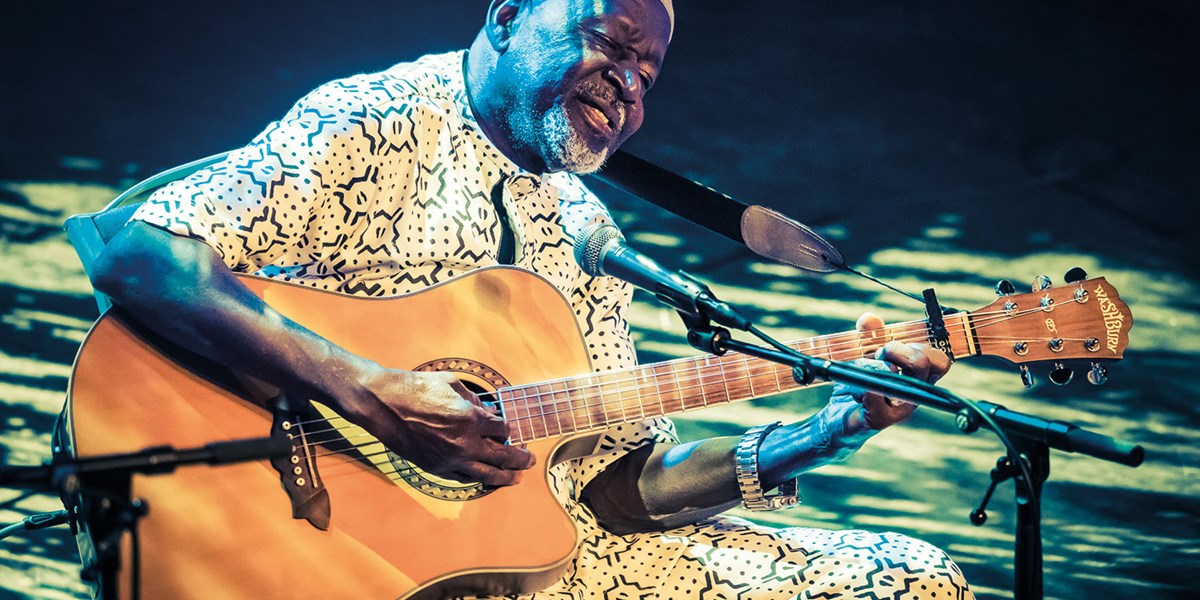Thursday, August 29, 2024
Førde Festival 2024: exploring the roots of music
Jo Frost heads to Førde Festival, a picturesque event that values home-grown Norwegian music as much as the global artists which are its calling card

Boubacar Traoré at Førde Festival (Lieve)

Register now to continue reading

Thanks for visiting the Songlines website, your guide to an extraordinary world of music and culture. Sign up for a free account now to enjoy:
- Free access to 2 subscriber-only articles and album reviews every month
- Unlimited access to our news and awards pages
- Our regular email newsletters

